The Best Sustainability Books to Guide Positive Change
Posted on: May 17, 2022
Sustainability is a term thrown around often in today’s fight to protect our physical, natural and social resources. Yet, what does that mean today with ever-increasing research and technological advancements? How can our current generations come together to meet climate crisis and avoid irreparable degradation through sustainable policies, business and day-to-day life?
Read on to discover more about sustainability practices and the best books to help you on the road to positive change.
The past, present and future of sustainability
What does the future of sustainability look like for today’s world? Does it mean cutting back on fossil fuels and holding companies accountable for waste management and pollution? Could it be switching your home’s energy sources to sustainable or renewable energy? The answer is complex as sustainability covers a broad range of areas.
A great resource to gain fundamental knowledge of sustainability is Martin Mulligan’s “An Introduction to Sustainability: Environmental, Social and Personal Perspectives.” This text provides students with a unique view of the key concepts and ideas that are the foundation of sustainability. This includes an in-depth study of what sustainability means environmentally, socially and personally.
Although sustainability often refers to climate change prevention and sustainable living, it can also be divided into four (if not more!) distinct areas: human, economic, social and environmental. These pillars often overlap since sustainability affects every facet of human life. However, there are specific characteristics within each area.
So when considering the past, present and future of sustainability, it’s important to recognize what sustainability actually means to each of these four areas:
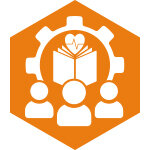 Human sustainability
Human sustainability
Human sustainability revolves around the development of personal skills and the ability of organizations to support the wellbeing of local communities and society. The idea is that efforts will be put into place to improve human capital in society, through access to health and education systems, as well as sustainable citizen-focused programs.
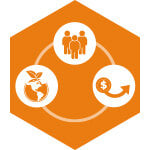 Economic sustainability
Economic sustainability
Economic sustainability is all about business capital. It focuses on how to maintain company profitability and economic growth in a sustainable manner. However, this area has noticeable gaps as many corporations focus more on economic growth rather than sustainable development. This has resulted in modern business practices that disregard the social and ecological impacts of economic growth.
Social sustainability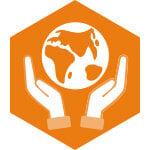
Social sustainability focuses on individual cultures, communities and globalization. It refers to the responsibility of people to preserve future generations and fight for equality and individual rights — with added emphasis on simultaneously protecting our environment.
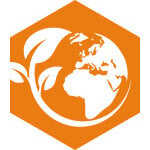 Environmental sustainability
Environmental sustainability
Environmental sustainability is the term most are familiar with and is used when discussing sustainable practices and policies. It prioritizes the improvement of human welfare through environmentally-focused practices, protections and programs. When we cover fossil fuels, renewable energy resources, nature and more, it’s understood as under the umbrella of environmental sustainability.
The science of sustainability and climate change
When it comes to sustainability and combating our current climate emergency, we need sustainable solutions that can protect our water, energy and food resources while also aiming for zero waste. Yet, how can we achieve this environmentally, economically and sociologically?
Oftentimes, sustainability rhetoric presents our choices as overall development vs. conservation efforts. But that’s not the case.
In reality, science has shown that a sustainable future is essential for both development and conservation efforts in the long run. The fact is our current practices aren’t sustainable for the rapid population growth that is predicted. The Nature Conservancy estimates that there will be 9.7 billion people on Earth by 2050 — which means over 50% increase in global food and energy demands. If we get stuck in a cycle of increasingly unsustainable demand, development won’t be able to continue either. Research shows that we need sustainable, interdisciplinary solutions to today’s economical, social and environmental challenges.
Sustainability touches every aspect of our lives. For a comprehensive look into this interdisciplinary field, look no further than Margaret Robertson’s “Sustainability Principles and Practice.” Written for undergraduate students, this book examines sustainability both conceptually and technically, with case studies from around the world.
If your goal is to make sustainability more accessible, then you should read and share Robert Fish and Holly McKelvey’s “Valuing Nature: The Roots of Transformation.” Using an interdisciplinary approach, this book imagines how a group of undergraduate students can philosophically and practically find solutions for natural resource management:
Another great resource is Adrian Ely’s “Transformative Pathways to Sustainability: Learning Across Disciplines, Cultures and Contexts.” Aiming to fill a scientific transdisciplinary approach to sustainability, this book is ideal for academics, action researchers and funders, policymakers and civil society organizations.
Sustainability books for government
The world holds a vast array of government systems, but their ultimate purpose (theoretically) is to serve and protect the people that they lead. In this role, it’s critical that those who govern or create policies invest in sustainable development and practices for the future of society. The bottom line is that there is no future security or well-being if we don’t combat the climate crisis and face the challenges of depleting resources.
One theoretical approach to sustainable governance is the “circular city.” A circular city reframes current economic development from a linear model to a circular model. In simple terms, this means creating a circular system where materials, nutrients, products, etc. are used and reused as long as possible — essentially aiming for zero waste. This cycle would minimize the waste of resources and other developmental and environmental damages that the current government model creates.
Want to dig deeper into the sustainability of a circular city and economy? Explore Jo Williams’ “Circular Cities: A Revolution in Urban Sustainability,” which is a groundbreaking book that uses a research-based approach to address essential sustainability issues.
For a look into the individual and institutional policies that can promote sustainability in government, take a look at Roland Mees’ “Sustainable Action and Motivation: Pathways for Individuals, Institutions and Humanity.” Written for students, scholars and policymakers, this book uses empirical psychology and phenomenological approach to propose policies that are effective and will help combat global warming.
Sustainability books for businesses
In our current climate crisis, it’s time that businesses step up to do their due diligence to reduce their negative environmental and social impacts. Although companies are usually focused on financial growth, there is no future growth without sustainability. The simple truth? It pays to protect the environment.
How can businesses address sustainability in their processes and strategies? First, they need to understand how their current models are affecting society and the environment.
Modern consumers are increasingly holding corporations accountable for their impact on global warming, the climate crisis and waste management. With transparency, companies need to be able to act on sustainability — after all, intentions won’t mean much for future generations.
To begin your corporate transformation, an ideal text to learn from is Bryan Hopkins’ “Learning Strategies for Sustainable Organisations.” As an independent performance and learning consultant with extensive international experience, Hopkins developed this book based on a systems thinking approach. It provides companies with the research and tools to actually implement sustainability-focused learning strategies.
Sustainability books for citizens
It’s important to remember that sustainability can also be practiced individually, as citizens and consumers in the world. This can mean rethinking how you use energy, where your waste goes or how fast fashion affects the environment. Most people don’t have control of their governments, businesses or economic circumstances, but they do have opportunities to live more sustainably on a smaller scale:
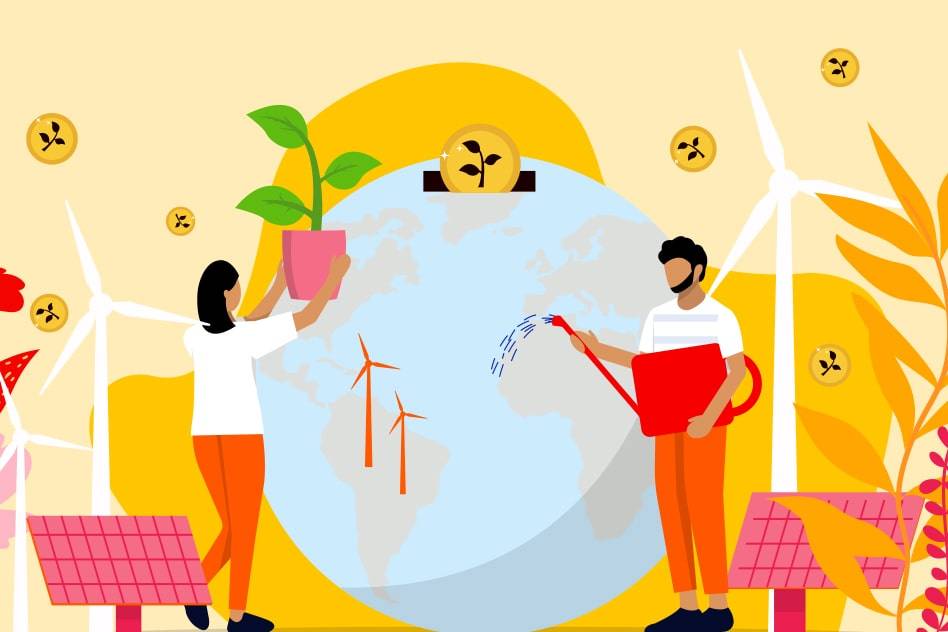
If you want more information on how new technologies will affect our individual lives and the future of sustainability, check out Felix Dodds, Carolina Duque Chopitea and Ranger Ruffins’ “Tomorrow's People and New Technology: Changing How We Live Our Lives.” It dives into our current experience within the Fourth Industrial Revolution, and how technologies are affecting the futures of our physical, digital and biological worlds.
For an in-depth study of how the climate crisis is inspiring effective action from children and students, Bronwyn Hayward’s “Children, Citizenship and Environment: #SchoolStrike Edition” is a masterful resource. Completely revised from the first edition, this text confronts the complex drivers of the climate emergency and how strikes are being used to lead the charge for sustainability.
Additional resources about the future of sustainability
Excited to learn more about sustainability and its future implications for the world? Explore our broad range of books here.

